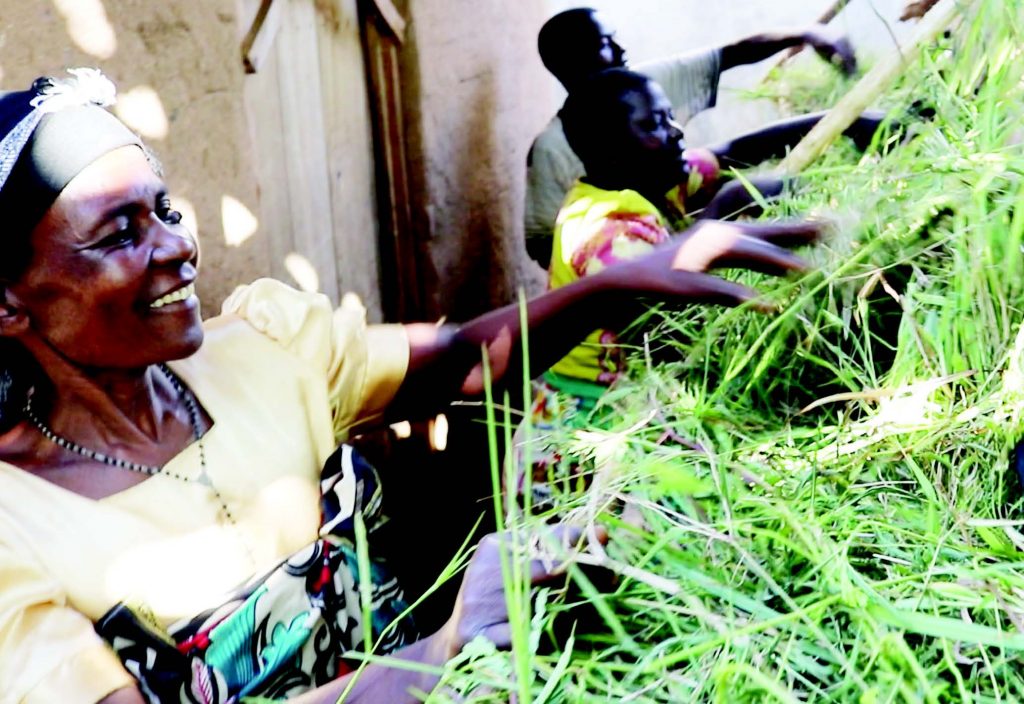Diversifying food value chains
Most Malawians depend on agriculture for food and income, but the desired shift from subsistence to commercial farming remains challenging.
A project by the International Crop Research Institute for the Semi-Arid Tropic (Icrisat) and the International Livestock Research Institute (ILRI) in partnership with Small-Scale Livestock and Livelihoods Programme has boosted farm income by stimulating diverse agri-food value chains in Balaka, Chiradzulu and Thyolo.

The Crop-Livestock Integration and Marketing in Malawi (Clim2) project funded by the European Union under the second Farm Input Diversification Programme (Fidp) engaged farmers, traders, agricultural extension workers and business experts to improve crop and livestock value chains.
In Chiradzulu, a youth group has become a viable business bloc when it comes to crop and chicken production, including value addition. Chintengo Youth Club, which started with 30 members growing different crops in 2017, is now a limited company with five shareholders on the rise.
“We chose chicken rearing as our main business, but feed was expensive. We couldn’t afford it,” says Gladys Ndau.
The project gave the youth a hammer mill and trained them to process feed on the farm. The mill also grinds grain for surrounding households.
The project mostly targets women and the youth, who are mostly excluded from value chains because they lack assets, including land, to obtain finances for business growth.
“We looked at entry points for women and the youth. We came up with three targeted value chains—goats, chickens and dairy—knowing that women and the youth could easily participate with limited resources,” says Professor Sikalazo Dube from ILRI.
He adds: “The big question was: How do we bring in mindset change so that more rural farmers move into commercial agriculture? How do we facilitate that change not only among farmers but other players in the value chains so that farmers move up the chain to processing and marketing,” he says.
The project provided start-up capital to farmer groups and small and medium enterprises that contributed 10 percent in cash or manpower.
The groups received livestock, seeds and training.
“While we have crop production extension workers in the rural areas, we need to have more agri-business and livestock extension workers to support farmers,” Dube explains
The project also trialled Kuroiler chicken in partnership with farmers in the three districts.
Dr Patrick Chikhungwa, director of animal health and livestock development in the Ministry of Agriculture, says scientific evidence is required to transform animal husbandry.
“We are working on reforming the vital sector to improve agriculture productivity and production. We need science-based evidence to support implementation of our programmes,” he explains.
The evaluation of the Kuroiler chicken has generated information for policy and strategic change, he states.
Chikhungwa explains: “The country has been struggling to identify a breed that can be easily managed by smallholder farmers at local level.
“We have had other breeds, including the black Australop widely known as mikolongwe. The Kuroiler is a more productive, dual-purpose breed that provides farmers with meat and eggs. It can feed on locally produced feeds and is more diseases resistant, the studies show.”
To create more rewarding markets for the goat farmers and processors, the EU-funded project supported the establishment of sale pens and auction facilities in all the three districts.
It also refurbished the Phalula abattoir and butchery cold chain.
“The cold rooms provided safe and hygienic storage of meat. Previously, it wasn’t easy to keep meat that remained after sales. We had to pay shop owners to store it in their refrigerators,” recalls butcher Fannuel Moyo.`
A perimeter fence has made the slaughterhouse secure, reducing the theft of goats tethered in the market.
Madalitso Mgombe, district agribusiness officer for Balaka, says farmers will profit as their goats will be auctioned using weighing scales.
“This brings competition and higher prices for quality,” he says.
“It encourages farmers to produce quality goats.”
The project supported 45 goat business groups and 12 groups handling digital scales. Five groups are women-led and four youth-led.
Temwa Mvula, Clim2 district officer in Balaka, put the new structure in context.
“Aggregating goats through sale pens, with transparent pricing through digital scales, rewards the efforts of feeding goats,” she says.
In Thyolo, the project has procured and rehabilitated micro-dairy processing equipment for three milk bulking groups and processors in Thyolo.
Bvumbwe Dairy Cooperative, which bulks milk from its members, struggled to sustain their business because raw milk sales are not rewarding.
“Low prices are a challenge. Processors give us quotas during the cold season and when there is over- production. Our farmers lose and look elsewhere for markets,” explains Laston Kampunga, leader of the cooperative.
The project supported the dairy farmers to achieve their aspirations to add value to their milk.
“They trained us in business administration, management of dairy cows and processing feed,” says Kampunga.
The group received machines for processing raw milk products and a hammer mill for making cattle feed for the benefit of cooperative members and other farmers in the vicinity.
“We will be buying more milk from our farmers and will not be throwing away milk since we will be processing all surplus milk here,” Kampunga states.
And Chikhungwa looks back with satisfaction: “Through the project, we have demonstrated the integration of crops and livestock.
“As we promote livestock production through improved value chains we are also promoting a wider range of crops and local feed processing.”





